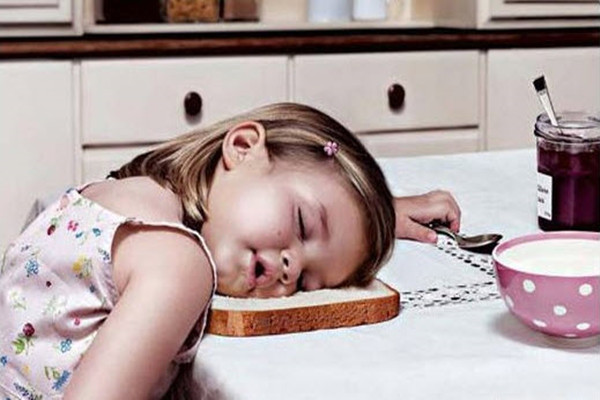吃太饱“食物昏迷”? <img src="/data/attachement/jpg/site1/20170206/64006a47a40a1a02223a04.jpg" border="0" />
中国日报网 2017-02-06 10:05

上班族午饭后回到公司“饭气攻心”,容易打瞌睡?俗话说“饱懒饿新鲜”——我们可能都有这样的感觉,那就是饥饿的时候头脑敏锐,而饱餐之后很容易犯困。人吃饱了饭,血液集中去胃部工作,脑部血液供应减少,头就有点昏,人就想睡觉。

You've just finished a big meal, and you're stuffed. You're thinking of taking a walk or even a stretch before clearing the table, but the thought of just getting out of your chair seems like a challenge.
刚吃了一顿大餐,肚里饱饱的,正想着收拾桌子前散散步做做运动,但似乎困得都瘫在椅子上了。
The idea of taking a snooze on the couch seems more and more appealing.
此时你越来越想在沙发上小睡一会儿。
Sounds familiar? There's a name for it: It's called postprandial somnolence -- commonly referred to as "food coma." The phenomenon refers to the tired, sleepy feeling that many of us experience after eating a big meal.
听起来很熟悉?这就是餐后困倦,一般称为“食物昏迷”,指的是在大吃一顿后感到昏昏欲睡,我们很多人都有体会。
Food coma refers to the feeling of listlessness, bordering on sleep, that one feels after eating a large meal, often caused by a rush of blood to the stomach and intestines during food digestion.
“食物昏迷”指的是在饱餐一顿之后感到无精打采,困倦难耐,通常是因为在食物消化过程中血液大量涌向肠胃的缘故。
You're not at risk of falling into a food coma if you're just having a few bites of a snack, though.
但如果你只是吃了几块零食,就不用担心陷入“食物昏迷”。
(中国日报网英语点津 yaning)

















 英语点津微信
英语点津微信 双语小程序
双语小程序